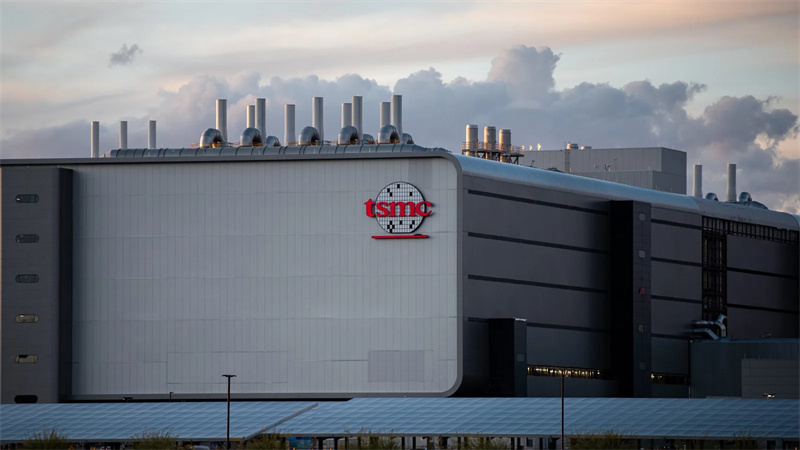On March 7, the looming threat of U.S. tariffs on Taiwan-made semiconductors is raising concerns across the tech industry, potentially leading to significant price hikes for consumer electronics. Meanwhile, Hewlett Packard Enterprise (HPE) has reported lower-than-expected earnings guidance, causing its stock to plunge nearly 20% in after-hours trading.
TSMC's U.S. Investment Fails to Deter Tariff Risks
Despite Taiwan Semiconductor Manufacturing Company (TSMC) committing to invest at least $100 billion in the U.S., reports suggest this may not be enough to shield it from potential American tariffs. The Trump administration is reportedly considering tariffs of up to 100% on Taiwanese-made chips, which could extend beyond semiconductor imports to consumer products that rely on these chips, such as iPhones.
If implemented, these tariffs could drive up prices of consumer electronics by as much as 100%, creating ripple effects across the industry. Insiders indicate that the administration is still debating the specifics of these tariffs, but the potential impact on global supply chains and consumer markets is substantial. Notably, TSMC's recent $165 billion investment in Arizona, which includes advanced packaging centers and a large R&D facility, marks the largest-ever foreign investment in the U.S. However, this may not exempt its products from new tariff measures.

HPE Stock Sinks Amid Tariff and Profitability Concerns
Adding to industry uncertainty, HPE issued a weaker-than-expected quarterly revenue forecast, triggering a sharp decline in its stock. The company reported a 16% year-over-year sales increase to $7.85 billion, slightly above analyst estimates. However, adjusted gross margin fell nearly seven percentage points to 29.4%, missing expectations of 31.3%.
HPE CEO Antonio Neri attributed declining profitability to challenges in the company's server division, including discounts, higher-than-expected costs, and an accumulation of older-generation semiconductors. The company also acknowledged that trade uncertainties stemming from U.S. tariff policies have impacted its server business.
In response, HPE plans to adjust product pricing, optimize its global supply chain, and implement cost-cutting measures, including a 5% workforce reduction, affecting approximately 2,500 employees. The company's cost-saving initiatives are expected to yield $350 million in annual savings by the 2027 fiscal year.
Tech Industry Braces for Disruptions
The potential for sweeping tariffs on Taiwanese semiconductors comes as the U.S. has already imposed trade measures on Mexico, Canada, and China. If the U.S. extends similar policies to Taiwan, nearly all major consumer tech products relying on TSMC's chips could see dramatic price increases, potentially reshaping the global electronics market.
As companies like HPE struggle to navigate ongoing trade tensions, the broader tech industry faces an uncertain future, with supply chain disruptions and cost challenges looming on the horizon.
+86 191 9627 2716
+86 181 7379 0595
8:30 a.m. to 5:30 p.m., Monday to Friday
